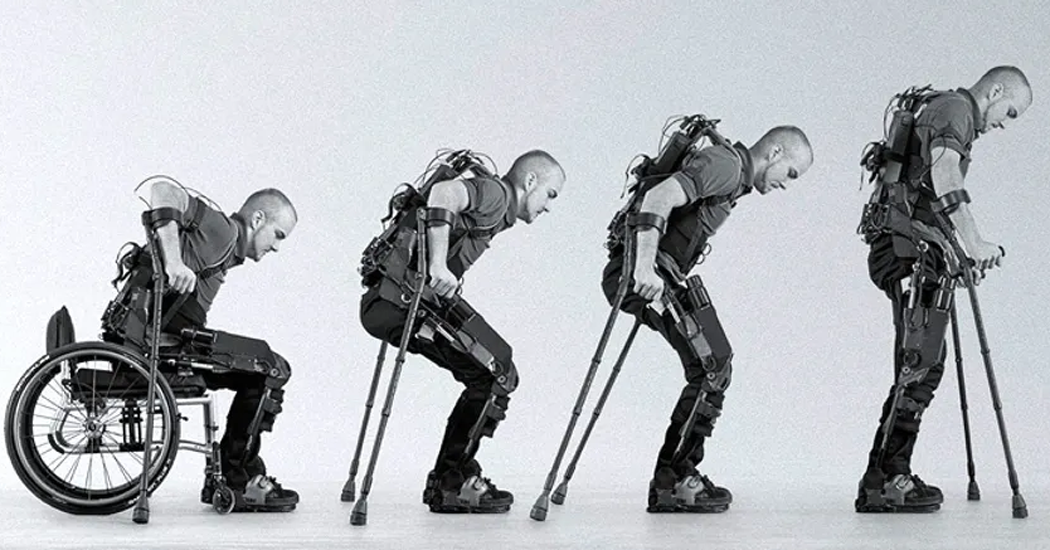The No Barriers Foundation in Letterkenny is inviting people in the community to benefit from free walking therapy as part of a unique research project with ATU Donegal.
People with varying levels of paralysis are being offered 12 weeks of rehabilitation using a robotic exoskeleton. The revolutionary suit enables people with stroke, MS, brain injury or spinal cord injury to stand and walk.
Suitable candidates will be part of a pioneering PhD research study into the effect of rehabilitation in the robotic suit. The RISE Trail, launching in August, will take place in ATU Donegal’s Letterkenny campus with therapy led by specially trained Chartered Physiotherapists.
Researchers would like to hear from participants that have had either stroke, brain injury, spinal injury or MS.
The main goal of the research is to identify the potential benefits that exoskeleton gait training can have on a person’s cardiorespiratory fitness, lower limb muscle contraction and movement, emotional response/arousal, and quality of life.
See the suit in action here:
The No Barriers Foundation has been leading the way with specialist neuro-rehabilitation involving the exoskeleton since 2016.
Johnny Loughrey, the No Barriers Foundation founder and Chief Executive, said: “We are seeing the benefits of exoskeleton therapy every day. Not only are there physical benefits, but there is a huge mental benefit to be gained from having the ability to stand upright in the exoskeleton and engage with other people at eye level. The RISE trial in collaboration with ATU Donegal aims to collect scientific evidence of the physical and emotional benefits of this modern therapy as well as the effects it has on one’s quality of life. We are very proud to provide this service to the northwest community.”
Damien Duddy, Ph.D. Researcher at ATU Donegal said: “This is a very novel and unique research project. As there are only a handful of exoskeletons available in Ireland. The No Barriers Foundation are the only charity that have exoskeleton therapy services that the community can avail of. The devices are comprised of advanced technology, and they are suitable for a wide variety of neurological impairments.
“As the exoskeleton devices are a relatively new rehabilitation technique, it is important from a research standpoint to investigate the potential benefits that they may offer to individuals with neurological impairments.”
Mr Duddy said the research has the potential to strengthen rehabilitation practices not just locally, but internationally. The local collaboration of research and industry-based practice between ATU Donegal and The No Barriers Foundation may strengthen the rehabilitation practices in many ways, he said.
“As this area is very novel and relatively unexplored, the findings of the research project could inform the programming for exoskeleton use within a neurological rehabilitation setting. In turn, this may help elicit maximum potential benefits from exoskeleton gait training and subsequently improve overall health and well-being.”
The No Barriers Foundation will be conducting initial assessments to see if a person is a suitable candidate for exoskeleton therapy through this programme. Candidates must be over 18 years of age, weigh less than 100kg and be ideally between 5ft and 6ft’ 3” in height.
Get in touch to find out more: hello@nobarriers.ie ⠀⠀⠀⠀⠀⠀
Tags:





